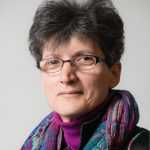
15 Aug Obesity-Associated Cancers Spike in Younger Age Groups and Hispanics
MedicalResearch.com Interview with:

Dr. Koroukian
Siran M. Koroukian, PhD
Director, Population Cancer Analytics Shared Resource
Case Comprehensive Cancer Center
Director, Population Health and Outcomes Research Core
Associate Professor
Department of Population and Quantitative Health Sciences
School of Medicine
Case Western Reserve University
Cleveland, OH
MedicalResearch.com: What is the background for this study? What are the main findings?
Response: Previous studies have shown that obesity-associated cancers (OACs) have been increasing in younger people. Using data from over 6 million cancer cases from 2000-2016, we identified the specific age/sex/race-ethnicity groups that were most affected by increases in OACs.
We found a substantial shift of obesity-associated cancers to younger age groups, with the most notable increases occurring to the 50-64 age group. In addition, we observed the greatest percentage increase in the number of OAC cases during the study period in Hispanic men and women, as well as for cancers of the thyroid, gallbladder, liver and intrabiliary duct.
MedicalResearch.com: What should readers take away from your report?
Response: Two take-aways:
- We are witnessing an increase in obesity-associated cancers in younger age groups following an epidemic of obesity over the past decades.
- Cancer is considered a disease of older people. In fact, prior studies had alerted us to a ‘silver tsunami’ of cancer cases, due to the aging of the population. Findings from our study show that we are now seeing a shift of incident cancers from older to younger age groups. This shift has significant public health and policy implications, as noted below.
MedicalResearch.com: What recommendations do you have for future research as a result of this work?
Response: First, the sex-based differentials in obesity-associated cancers and non-OACs are of great interest. Of course, many of the OACs, such as breast and uterine cancers, are specific to women; but it is important that we look at trends in cancers that are gender-neutral — colorectal cancer, for example.
Second, although the cancers we studied are known as OACs, an important limitation of our study was the lack of data on body mass index (BMI) at the individual level. Therefore, we were unable to determine whether OACs occurred in persons with high BMI.
Third, while the guidelines recommend initiating cancer screening after a certain age, our findings highlight the importance of personalized screening to start screening at a younger age in people with high-risk for cancer. However, more research is needed to determine the specific factors (e.g., genetics, environmental, obesity) that should be considered and how these factors should be weighed in personalized screening.
MedicalResearch.com: Is there anything else you would like to add?
Response: Findings from our study carry several public health and policy implications.
From a public health perspective, we note the importance of curbing obesity, especially in children and young adults. We also emphasize vigilance in the provider community regarding symptoms that younger patients may present with, but may not be investigated to rule out cancer because of their age. As a result, cancer in younger age groups tends to be diagnosed at later stages, and this affects their prognosis to a great extent.
Finally, we note that cancers occurring in younger age groups imply increased morbidity and premature mortality when people are at the height of their productivity. From a public policy perspective, increased OACs in midlife adults imply a greater number of cancer survivors in incoming Medicare cohorts. These trends may also imply a potentially higher influx of cancer survivors into the Medicaid program, due to the financial toxicity induced by the disease. Hence, the societal burden of these trends is substantial.
Citation:
Subscribe box:
JOIN OUR EMAIL LIST
[mailpoet_form id="5"]We respect your privacy and will never share your details.
Last Modified:
Last Modified : [last-modified]
The information on MedicalResearch.com is provided for educational purposes only, and is in no way intended to diagnose, cure, or treat any medical or other condition. Always seek the advice of your physician or other qualified health and ask your doctor any questions you may have regarding a medical condition. In addition to all other limitations and disclaimers in this agreement, service provider and its third party providers disclaim any liability or loss in connection with the content provided on this website.
Last Updated on August 15, 2019 by Marie Benz MD FAAD
